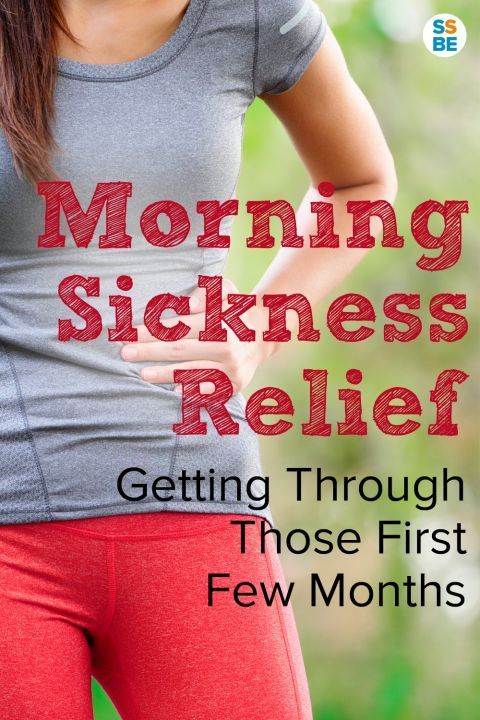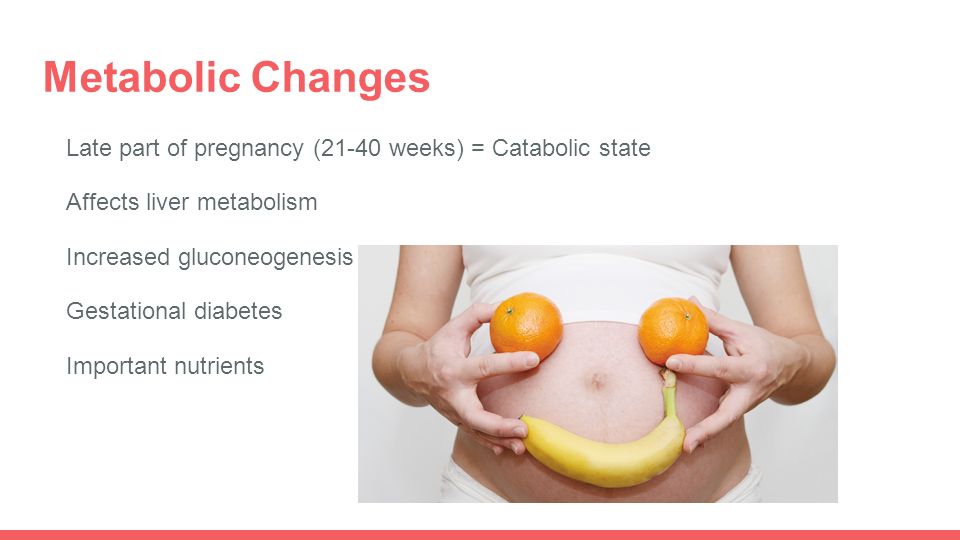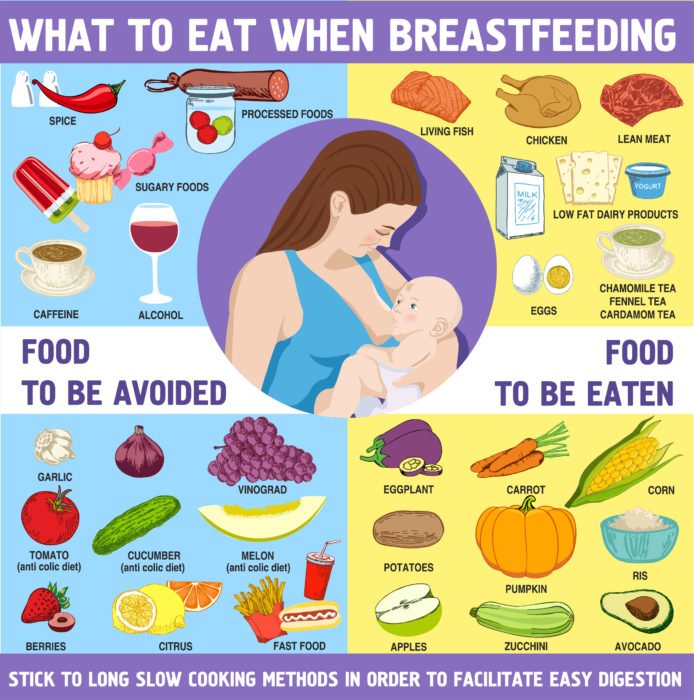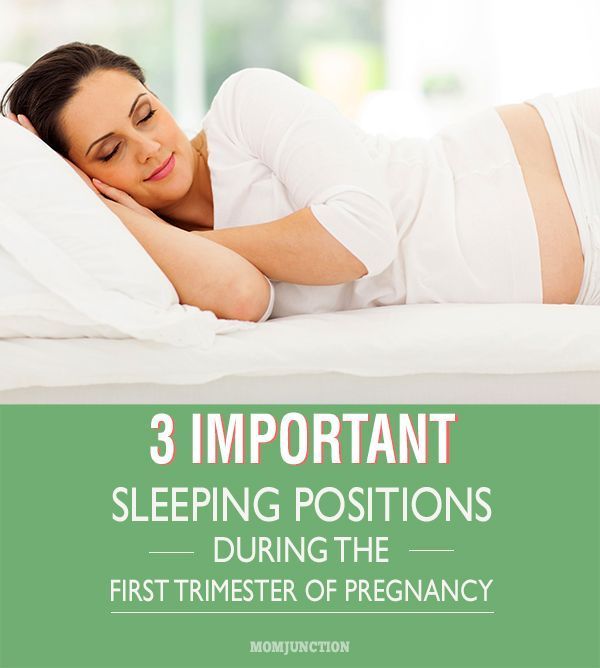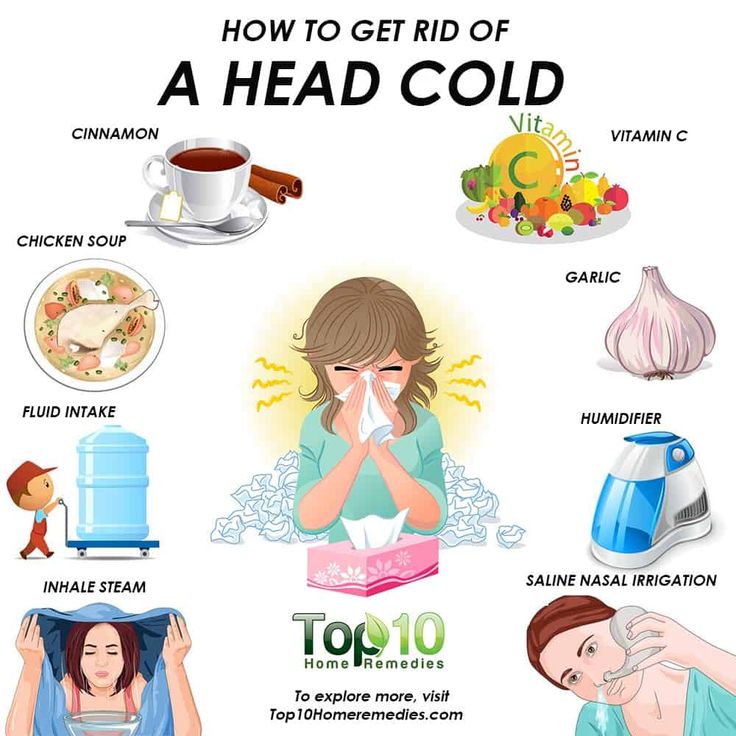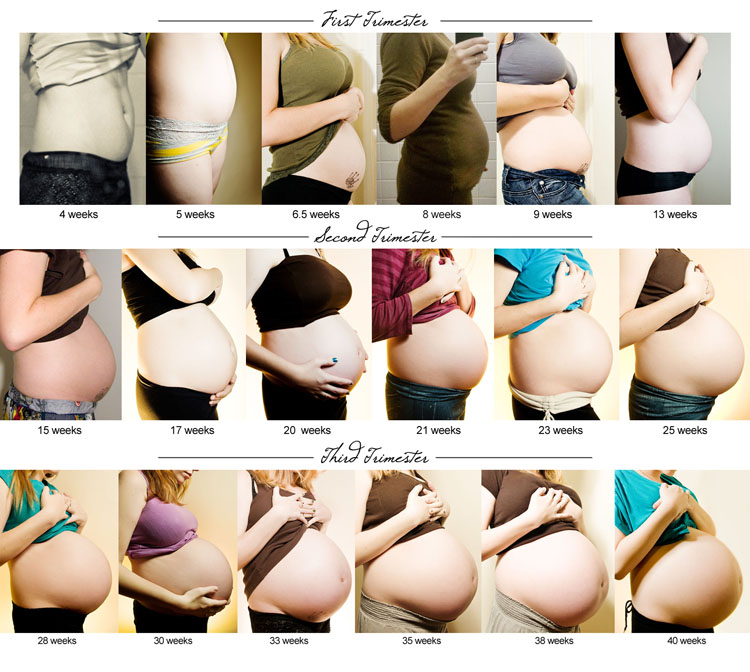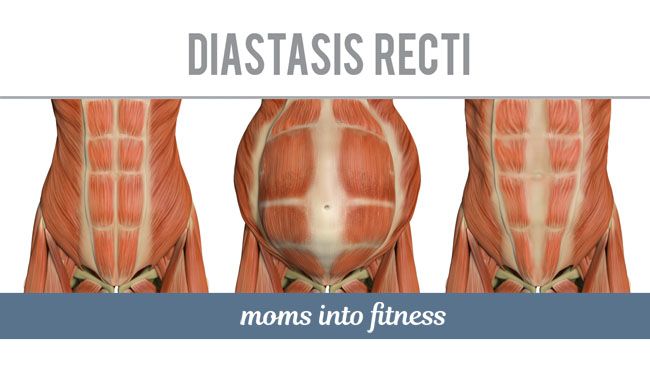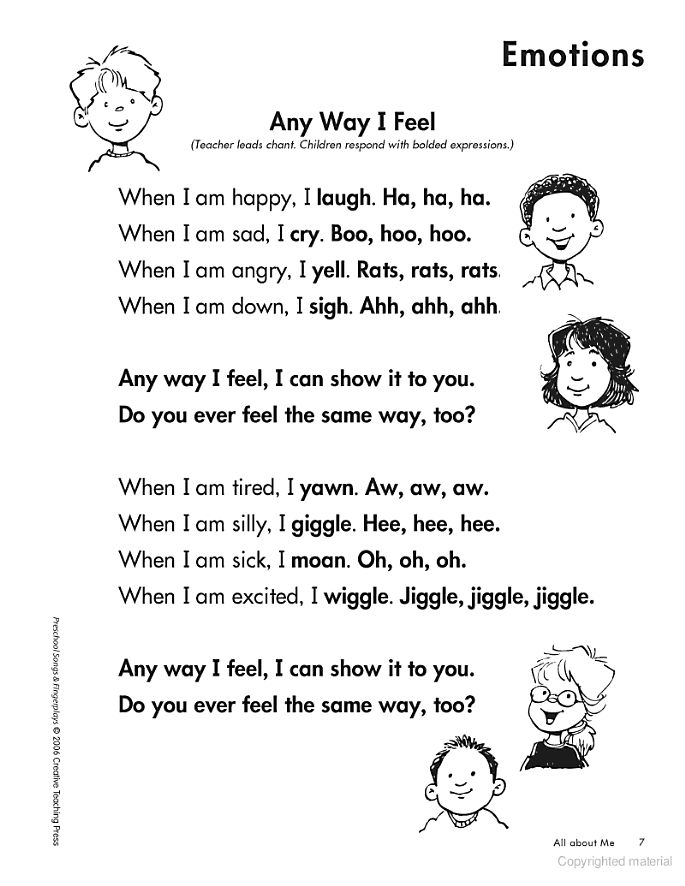Tips for first trimester nausea
10 Tips To Help Survive Nausea During Pregnancy
-
By
Micah Dorfner
Positive pink line on pregnancy test? Check. Small flutter on early ultrasound? Check. Nausea and vomiting? Double-check.
Often the constant feeling of nausea, which is accompanied by vomiting, soon overshadows the excitement of early pregnancy. Approximately 50-90 percent of women experience nausea and vomiting in their pregnancy, and 5 percent of women have the same symptoms throughout the entire pregnancy, per The American Congress of Obstetricians and Gynecologists.
"The term 'morning sickness' is misleading; nausea can occur any time of the day," says Emily Linklater, D.O., Mayo Clinic Health System OB/GYN physician. "For most women, the nausea ends sometime in the late stages of the first trimester. Nausea may also be worse — or better — in one pregnancy versus another."
Unfortunately, science hasn’t proven the exact cause of nausea and vomiting in pregnancy. The elevated pregnancy hormone, BHCG, and elevated estrogen have both been hypothesized as contributing to symptoms.
What can an expectant mother do? Here are some tips for surviving nausea and vomiting:
- Eat several small meals a day, and don’t skip breakfast. Many women need to have a few saltine crackers before getting out of bed in the morning.
- Avoid triggers. If the smell of chicken makes you nauseous, avoid the smell when possible.
- Don’t lie down after eating.
- Plan small snacks throughout your day to avoid long periods of time without eating.
- Avoid spicy and fatty foods.
- Consider using anti-nausea wrist bands. These bands are placed on your wrist to trigger pressure points that may alleviate nausea.
- Think about consuming ginger — either ginger ale, ginger candies or ginger tea.
- Increase your intake of vitamin B6, which has been shown to help decrease nausea.
- Change the time of day you take your prenatal vitamins.
 Take your prenatal vitamins in the morning, afternoon or night. Consider gummy vitamins if the traditional large pills trigger nausea.
Take your prenatal vitamins in the morning, afternoon or night. Consider gummy vitamins if the traditional large pills trigger nausea. - Try to get plenty of rest.
If over-the-counter options do not improve nausea and vomiting, then it’s wise to speak with your health care provider about anti-nausea prescription medications. Many prescription medications are safe in pregnancy and can relieve severe symptoms.
Can nausea and vomiting cause a miscarriage or hurt your baby? The answer is no. However, it’s important to monitor yourself for signs of dehydration. If you’re losing weight, have decreased urination, or are unable to eat or drink for more than a day, you should see your health care provider.
Related articles
Mayo Clinic Minute: Winter skin protection tips
Winter weather changes can negatively affect the skin – the body's largest organ.
Colder temperatures and a lack of moisture in the air can damage unprotected skin, especially [.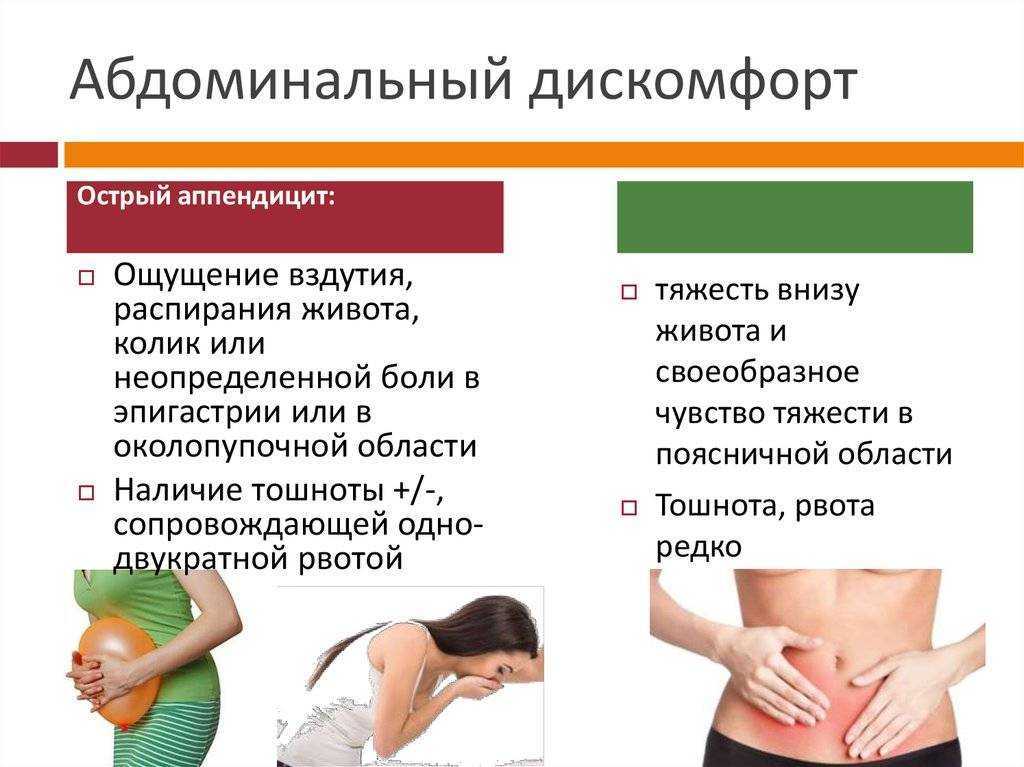 ..]
..]
By Jason Howland • January 4, 2023
1-2-3 approach to eating fruits and veggies
Is it a challenge for you to eat all five servings of fruits and vegetables every day? The 1-2-3 approach can help you pack in [...]
By Joel Streed • January 4, 2023
Easing Nausea during Pregnancy: 6 Tips | Methodist Health System
Morning sickness can happen any time
The name is a lie. The term “morning sickness” really is misleading. It’s one of the first pregnancy truths experienced by new moms as they learn what to expect while expecting.
In reality, that nauseous, queasy feeling which sometimes leads to vomiting can happen any time of day. It’s just one of the many changes nearly 90 percent of women – including many of my patients – experience during pregnancy, and there’s not much that health care providers can do to predict or prevent it.
Who is likely to develop nausea?
The women most likely to experience nausea during pregnancy are younger and having their first babies.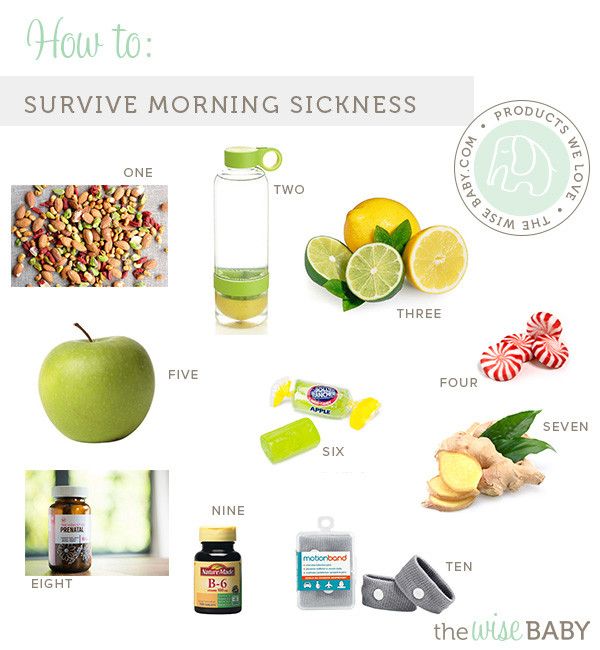 Their mothers also likely had a rough time with morning sickness. It generally starts when women are five to six weeks pregnant and lasts about six weeks, although some lucky women feel nauseous through their entire pregnancy.
Their mothers also likely had a rough time with morning sickness. It generally starts when women are five to six weeks pregnant and lasts about six weeks, although some lucky women feel nauseous through their entire pregnancy.
As for what causes the nausea, no one really knows for sure. It could be the body’s response to stress or hormone fluctuations due to pregnancy, the stretching of abdominal walls or the increase in progesterone which slows down gastric motility. There’s a heightened sense of smell which adds to the equation, and it’s also safe to say that women who already suffer from acid reflux are more likely to have severe nausea, vomiting and heartburn.
So what can you do about it?
While there is no tell-tale cure, I do have a list of recommendations:
- Eat small, frequent meals throughout the day. Many of us are used to three big meals and some snacks in between, but that is not the game when you are pregnant. Instead, eat tiny meals all day long.
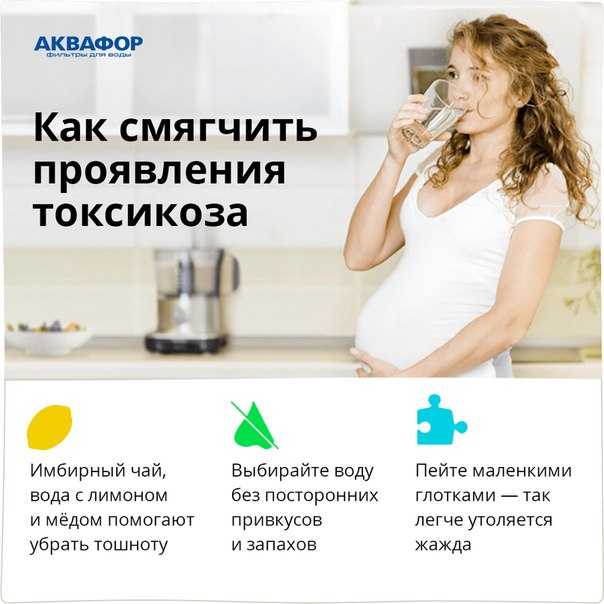 I often tell my patients with morning sickness to eat some crackers or raisins before they even get out of bed or into the shower.
I often tell my patients with morning sickness to eat some crackers or raisins before they even get out of bed or into the shower. - Avoid food or smell triggers. If you can’t tolerate a certain taste or smell, get rid of it, and avoid strong smells or spices for a little while. Bland foods – crackers, toast, etc. – are generally best. If you feel like all you can eat is popcorn and string cheese, then eat popcorn and string cheese. Being on a specific diet for a few weeks will not harm your baby.
- Separate drinking from eating. Drink something either 30 minutes before or after eating to avoid that really full feeling. When it comes to beverages, clear and carbonated liquids tend to be best.
- Try an acupressure band. Worn approximately 3 finger-widths above the wrist, acupressure bands have been known to alleviate nausea. These small bands can be purchased over the counter at many local pharmacies.
- Eat foods rich in ginger.
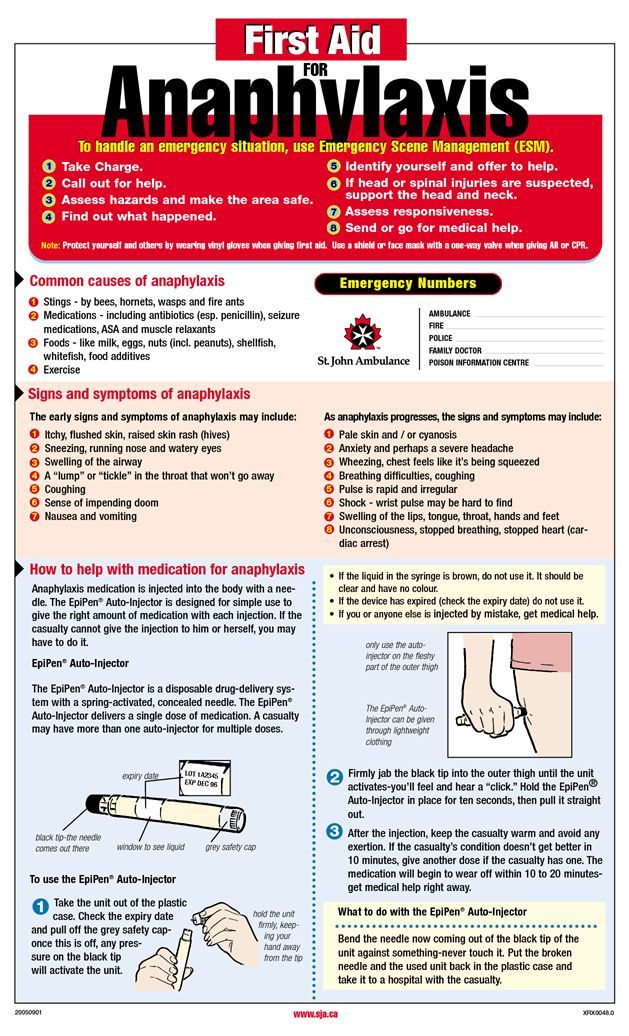 Many scientific studies have shown that eating ginger can reduce nausea and vomiting in pregnancy. Try things such as ginger ale, ginger tea, ginger snaps or other foods made with ginger.
Many scientific studies have shown that eating ginger can reduce nausea and vomiting in pregnancy. Try things such as ginger ale, ginger tea, ginger snaps or other foods made with ginger. - Take prenatal vitamins at night and add B6. Prenatal vitamins can upset your stomach, so take them in the evenings until you feel better. Consider a brand that is coated or chewable and take them with a meal. Some studies link Vitamin B6 to stress reduction and nausea relief, so it won’t hurt to add a little to your vitamin routine. A tip for those who are still trying to become pregnant: Starting a prenatal vitamin before conceiving may make you less likely to have nausea from the vitamin once you are pregnant.
If you can’t tolerate food or water for 24 to 48 hours, or if you lose the ability to urinate, you need to immediately contact your OB/GYN or one of the health care professionals at Methodist Physicians Clinic.
About the Author
Dr. Emily Lange says the thrill of delivering babies never gets old, and neither does helping women with their most intimate care needs.
Emily Lange says the thrill of delivering babies never gets old, and neither does helping women with their most intimate care needs.
"So many women relate their health care needs to their family and community needs," said Dr. Lange, "and I enjoy having that conversation with them as well as providing their medical care."
You can begin your conversation with Dr. Lange today at Methodist Physicians Clinic located within Methodist Jennie Edmundson Medical Plaza.
See more articles from Emily Lange, MDWe fight against toxicosis - articles from the specialists of the clinic "Mother and Child"
Alexandrova Anna Evgenievna
Embryologist
Clinic "Mother and Child" South-West
rest more
Very often in the first trimester, the expectant mother feels weakness, drowsiness, she wants to lie down to rest, and sometimes she simply does not even have the strength to move. This, of course, is not toxicosis, but if such sensations arise, then they must be indulged so as not to inadvertently provoke another attack of nausea. Get plenty of rest and do not make any sudden movements, because even if you just fail to get up from a chair, you can provoke an attack of nausea. nine0003
Get plenty of rest and do not make any sudden movements, because even if you just fail to get up from a chair, you can provoke an attack of nausea. nine0003
Sleep with the windows open: the air in the bedroom should be fresh and cool. Go to bed on time, do not sit at midnight in front of the TV or at the computer, eliminate all irritating factors: an uncomfortable mattress, blanket, pillow, hard bedding - lack of sleep can respond with morning sickness.
eat right
Eat small meals, 5-6 times a day, or even more often. When you wake up, don't get out of bed right away. One of the most effective methods against toxicosis is breakfast in bed. In the evening, put crackers, yogurt, or any product that you can tolerate well next to your bed. Eat it before you get up, and then lie down for a while. Most likely, morning sickness will either not appear at all, or will be very weak. nine0003
Usually, in case of toxicosis, it is not recommended to eat fatty, smoked, salty, pickled, drink soda (the usual set of food hazards).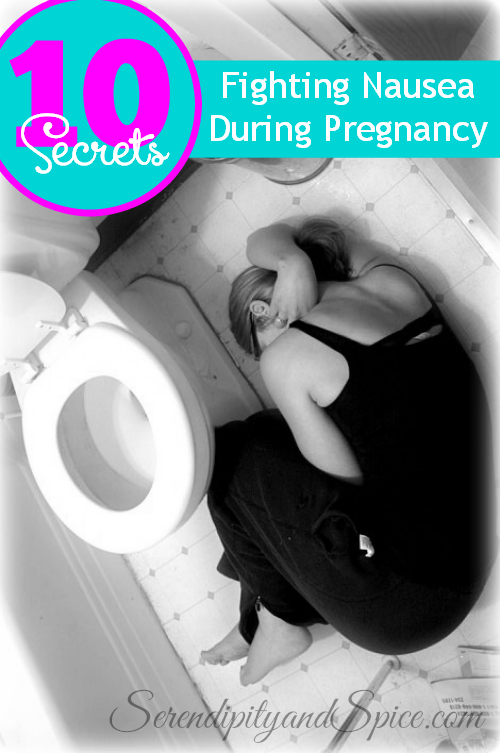 But it is likely that some not very healthy product will now be well tolerated, and something from healthy food, on the contrary, will cause nausea. "Pregnant whims" - a cake with herring or pineapples at night - these are the requests of the body that it needs one or another component in food. For example, the desire to chew chalk is a sign of calcium deficiency. So eat what you like and what you want, within reason, of course. And if you don’t feel like something, even if this product is extremely useful and necessary, don’t eat it. If you feel sick from some dish, it means that the body signals you: I don’t need this now! nine0003
But it is likely that some not very healthy product will now be well tolerated, and something from healthy food, on the contrary, will cause nausea. "Pregnant whims" - a cake with herring or pineapples at night - these are the requests of the body that it needs one or another component in food. For example, the desire to chew chalk is a sign of calcium deficiency. So eat what you like and what you want, within reason, of course. And if you don’t feel like something, even if this product is extremely useful and necessary, don’t eat it. If you feel sick from some dish, it means that the body signals you: I don’t need this now! nine0003
drink more often
Toxicosis may not be limited to nausea, some may also vomit. This means fluid is lost. Therefore, between meals, drink more often: a sip or two of mineral water or tea with lemon will help to cope with nausea and replenish lost fluids. But drink in small sips. Also, you should not drink food and you should give up soups for a while - a large amount of food drunk and eaten, on the contrary, only provokes nausea and vomiting.
breathe fresh air
Outdoor walks are good for everyone, but especially for toxicosis. Firstly, when walking, the blood of the expectant mother and baby is saturated with oxygen, which is very important for health, and secondly, walking calms the nervous system. Together, this helps to reduce the unpleasant symptoms of toxicosis. You need to walk at least two hours a day - but not just along the street, but in the place where the air is really fresh: in the forest, park, square, and best of all outside the city. Before you go out, think over the route: go away from gas-polluted highways, street cafes, food stalls and other "fragrant" places. nine0003
eliminate fragrances
Taste and smell preferences change during the first trimester. Now even your favorite perfumes can cause nausea, headaches and allergic reactions. Therefore, put away all fragrant cosmetics that irritate you: perfumes, deodorants, creams, and so on. You will have to stop using your favorite perfume for both your husband and loved ones. Explain to others that this is not a whim, but a temporary measure, very soon everything will return to normal. nine0003
Explain to others that this is not a whim, but a temporary measure, very soon everything will return to normal. nine0003
And do not worry that now you will be left without your usual beauty products. Both the cosmetic store and the pharmacy are full of different creams, tonics, shampoos without fragrance or with a minimal smell.
work with yourself
Psychologists believe that the cause of toxicosis is not only in hormonal changes, but also in the psychological state of a woman. The more a woman experiences, the more anxieties and fears she has, the more pronounced toxicosis can be. Ideally, it is better to limit yourself during pregnancy from any stress. Of course, it’s not always possible to eliminate nervous work or crowding in public transport, but watch less TV, don’t read negative news and various pregnant “horror stories” on the Internet, and don’t react to minor or even major everyday troubles everyone can do. Therefore, if you are worried about toxicosis, create your own comfortable world during pregnancy. If you can’t cope on your own, contact a specialist (psychologist). Toxicosis is really well treated with psychotherapy. The main thing is that the expectant mother should want to get rid of her own anxiety. nine0003
If you can’t cope on your own, contact a specialist (psychologist). Toxicosis is really well treated with psychotherapy. The main thing is that the expectant mother should want to get rid of her own anxiety. nine0003
No matter how unpleasant toxicosis is, it does not last forever. It is necessary to suffer until the beginning or (less often) the middle of the II trimester. And very soon all the unpleasant symptoms of toxicosis will remain in the past!
Make an appointment
to the doctor - Alexandrova Anna Evgenievna
Clinic "Mother and Child" South-West
ICSIECO
By clicking on the send button, I consent to the processing of personal data
Attention! Prices for services in different clinics may vary. To clarify the current cost, select a clinic nine0003
Clinical Hospital MD GROUPClinical Hospital Lapino-1 "Mother and Child"Clinic KG "Lapino" in Odintsovo (branch)Clinic "Mother and Child" Khodynskoye PoleClinic "Mother and Child" KuntsevoClinic "Mother and Child" SavelovskayaClinic "Mother and Child" Yugo-ZapadMother and Child Clinic NovogireevoMother and Child Clinic Lefortovo
All directionsSpecialist consultations (adults)Specialist consultations (children)Laboratory of molecular geneticsGeneral clinical studiesTreatment roomTelemedicine for adultsTherapeutic studiesUltrasound examinations for adults
01.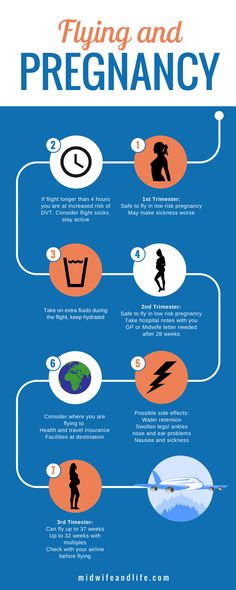
Consultations of specialists (adults)
02.
Consultations of specialists (children's)
03.
Laboratory of molecular genetics
04.
General studies
05.
05.
Cabinet
06 06.
Adult Telemedicine
07.
Therapeutic Research
08.
Adult Ultrasound
Nothing found
The administration of the clinic takes all measures to timely update the price list posted on the website, however, in order to avoid possible misunderstandings, we advise you to clarify the cost of services and the timing of tests by calling
How to deal with toxicosis - doctor's advice
toxicosis, said Olga Sergienko, head of the pregnancy pathology department of the perinatal center of St. Petersburg State Pediatric Medical University, obstetrician-gynecologist
Toxicosis occurs at different stages of pregnancy, and this condition is associated with exposure to substances that are formed in the mother's body during the development of the fetus.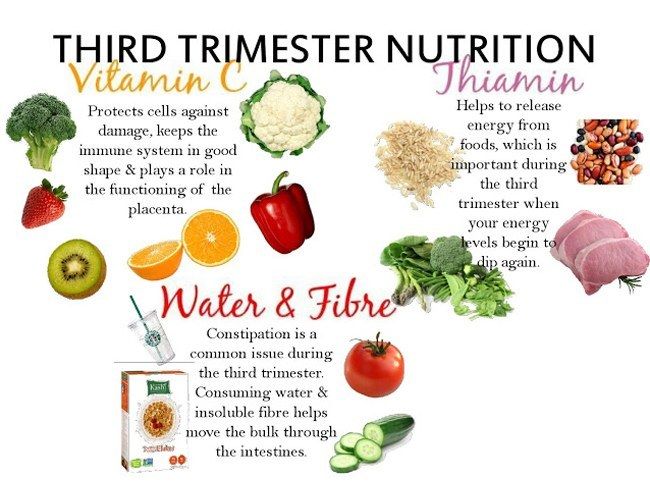 The most common symptoms of early toxicosis are weakness, drowsiness, and nausea.
The most common symptoms of early toxicosis are weakness, drowsiness, and nausea.
Toxicosis during pregnancy - normal or pathological?
Toxicosis is a manifestation of a pathological reaction of a woman's body to a developing pregnancy. The severity of this reaction can vary from minor complaints to changes that require medical attention. nine0003
Is toxicosis dangerous for mother or baby?
Toxicosis can be dangerous if it becomes severe. For example, excessive vomiting causes:
- severe dehydration,
- changes in blood electrolyte balance,
- violation of the function of various organs and systems, which makes it necessary to raise the question of artificial termination of pregnancy.
Nausea and vomiting are the most common manifestations of toxicosis in pregnant women. For any complaints, you should consult a doctor for examination, assessment of the severity of the condition, identification of concomitant pathology, which is aggravated during toxicosis and the timely start of adequate treatment.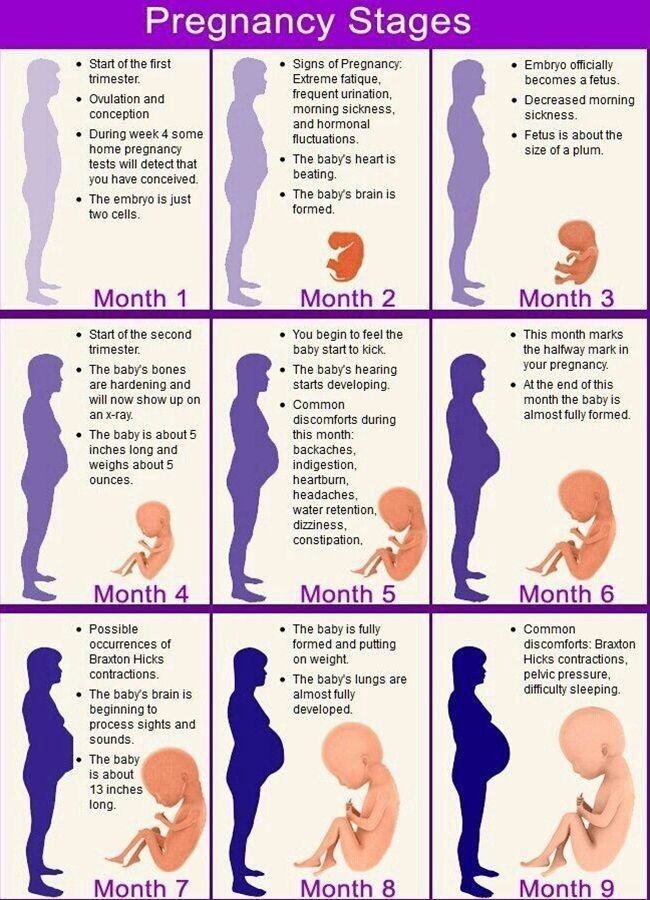 nine0003
nine0003
How to make life easier for a future mother during pregnancy with toxicosis?
Recommended:
- eat often and in small portions,
- eat easily digestible food,
- Avoid oily, fried, spicy foods.
Depending on the accompanying pathology, drug therapy may be prescribed by a doctor. And, of course, preventive measures at the stage of pregnancy planning are of great importance, such as:
- treatment of chronic diseases, especially of the gastrointestinal tract,
- , if necessary, correction of the emotional state of the expectant mother,
- elimination of mental stress, adverse environmental factors,
- depression in pregnancy.
What happens in the body of a pregnant woman with preeclampsia?
According to the international classification, this condition is called preeclampsia (preeclampsia), in other words, it is toxicosis that occurs later in pregnancy. nine0003
nine0003
There are several theories for the development of preeclampsia. The main reason is the disruption of the placenta and the blood supply to the uterus, which triggers a mechanism for increasing pressure due to vasospasm and further disruption of the function of various organs and body systems.
Who has the highest risk of preeclampsia?
Various factors contribute to the development of preeclampsia, such as:
- first upcoming birth,
- extragenital pathology (pre-existing arterial hypertension, kidney pathology),
- vascular diseases (chronic venous insufficiency),
- endocrine pathology (diabetes mellitus, dyslipidemia, obesity),
- autoimmune diseases (antiphospholipid syndrome, systemic lupus erythematosus),
- age of pregnancy (under 18 and over 30),
- multiple pregnancy,
- genetic predisposition,
- occupational hazards,
- unfavorable working and living conditions.
